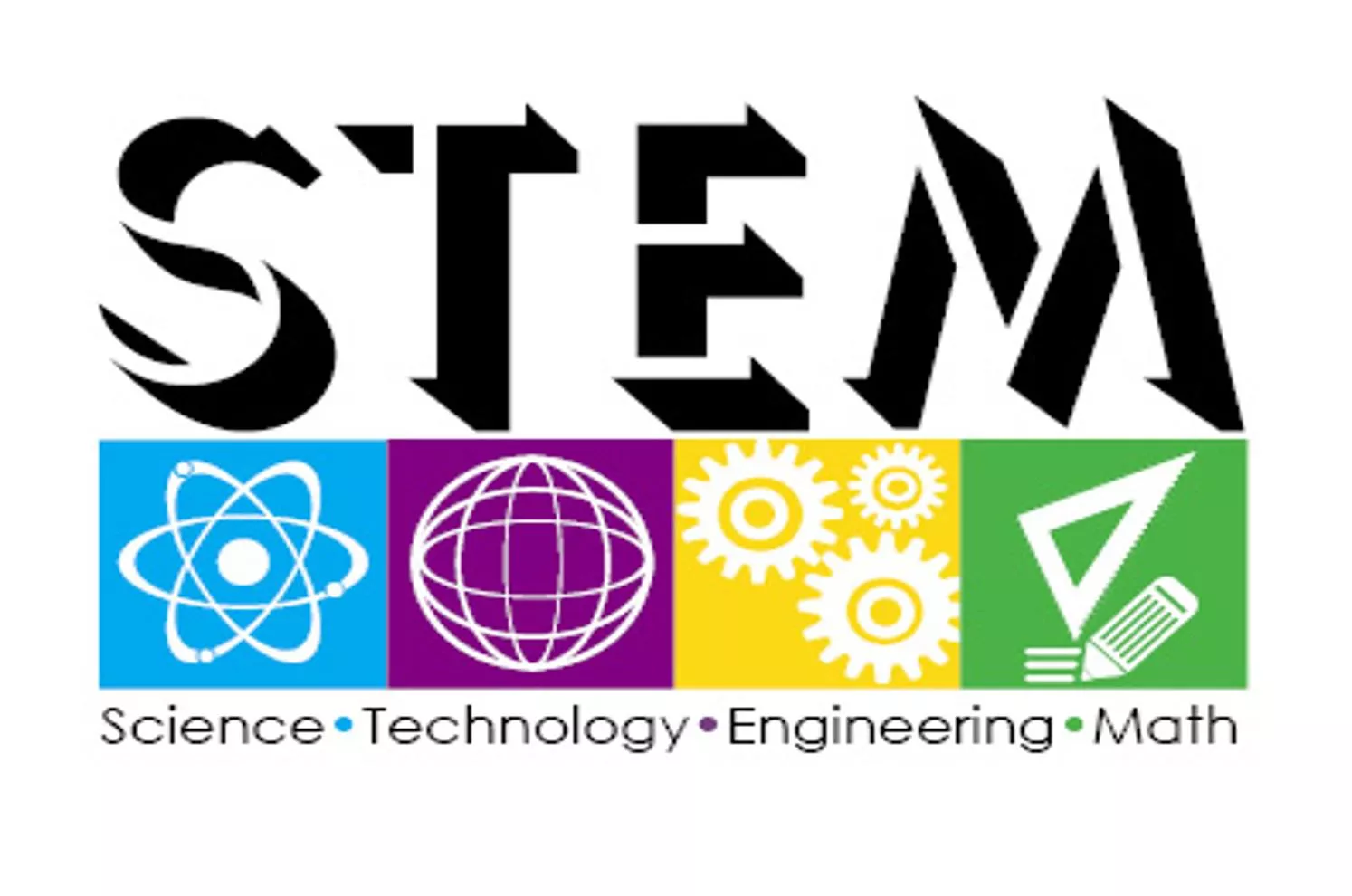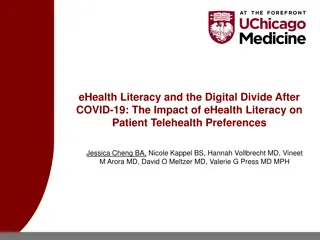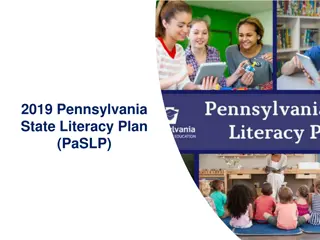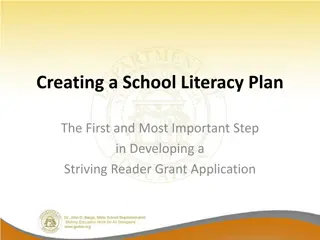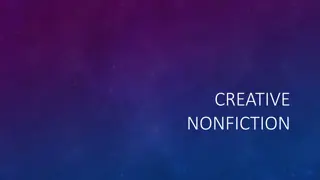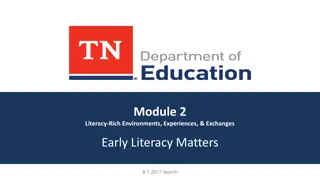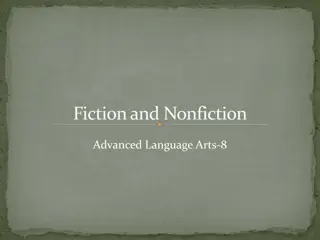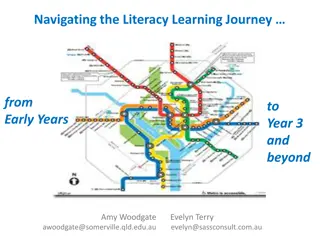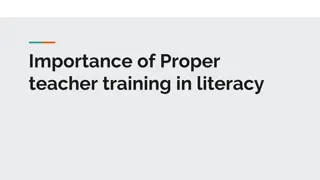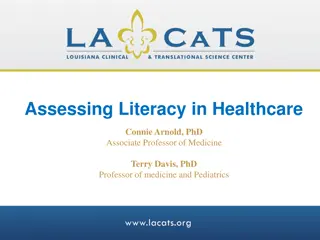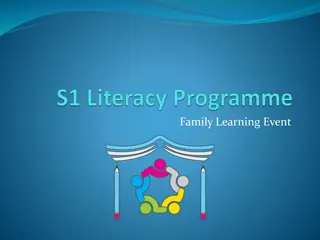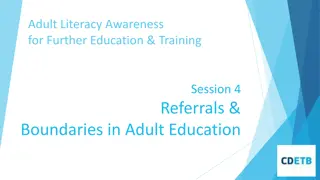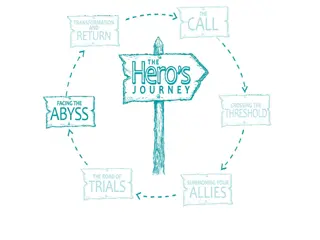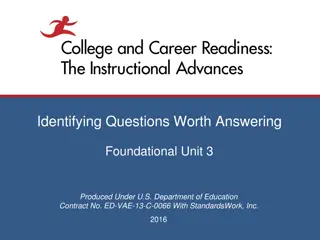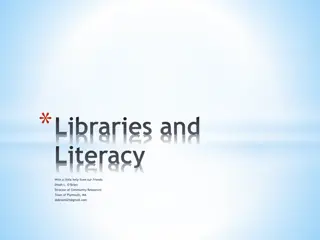Enhancing Nonfiction Literacy Through Science Education
Embrace the importance of nonfiction literacy intertwined with science education and engineering careers. Encourage students to delve into the world of factual reading and writing to make informed decisions in our ever-evolving society. Utilize the lives and work of scientists and engineers to spark curiosity and connect students' interests with the realm of science.
Download Presentation

Please find below an Image/Link to download the presentation.
The content on the website is provided AS IS for your information and personal use only. It may not be sold, licensed, or shared on other websites without obtaining consent from the author. Download presentation by click this link. If you encounter any issues during the download, it is possible that the publisher has removed the file from their server.
E N D
Presentation Transcript
HUBBARD ELEMENTARY October 29, 2013 Susan Belgrad & Steve Holle
PASS THE PULSE ACTIVITY http://www.online-stopwatch.com/large-stopwatch/ holding-hands
TODAYS GOALS Understand: Importance of nonfiction literacy How to connect nonfiction literacy, science and engineering careers, and scientists and engineers
Building Nonfiction Literacy Has Never Been More Important
http://www.nextgenscience.org/case-next- generation-science-standards Kids experimenting
Science plays a larger role in our daily lives than ever before. So, it s essential for students to become skilled at nonfiction reading and writing. Being able to read a newspaper and make informed decisions about one s health, the environment, and local and global affairs requires solid nonfiction reading and writing skills.
CONNECTING TO COMMON CORE Reading Anchor #1: Read closely to determine what the text says explicitly and to make logical inferences from it; cite specific textual evidence when writing or speaking to support conclusion drawn from the text. Reading Anchor #3: Analyze how and why individuals, events, or ideas develop and interact over the course of a text. Writing Anchor #7: Conduct short as well as more sustained research projects based on focused questions, demonstrating understanding of the subject under investigation. Speaking & Listening Anchor #1: Prepare for and participate effectively in a range of conversations and collaborations with diverse partners, building on others ideas and expressing their own clearly and persuasively.
As You Teach Nonfiction Literacy Use science and the lives and work of scientists and engineers to: Build nonfiction reading and writing skills Foster students awareness of the wide variety of science careers and the vibrant women and men working in science Help students explore who they are and connect their interests to science
Reading! A Science Article Take a few minutes to read the articles about science and engineering. Purpose: To demonstrate connecting engaging expository reading to science careers.
As you read, analyze how the article . . . Captured your interest. Described the details of the innovation. Made you feel like you could know a student like this. Share in teams. Complete the PMI graphic organizer. Then we ll discuss the article as a group.
http://www.youngzine.org/sites/default/files/images/aidan-dwyer.jpghttp://www.youngzine.org/sites/default/files/images/aidan-dwyer.jpg 1. What began the scientific journey of the inventor? Explain how the observation resulted in problem solving? What is something new that you learned? If you were a student wanting to learn more about our world, where would you look online? Check out Youngzine.org 2. 3. http://www.newmiamiarch.org/Atimo_s/articles_images/1362018322929.jpg 4.
Now - Lets Process This Activity How did you connect with the nonfiction literacy? What was science? What was engineering? Did it show how students can access careers, as scientists and engineers? How will you apply this?
The Winners Have Been Announced! googlefair2013.jpg The Google Science Fair is an online competition open to students aged 13-18 around the globe. Our Goal is to inspire the students WE teach to know that they can acquire the knowledge, skill and creativity to make a difference too!


